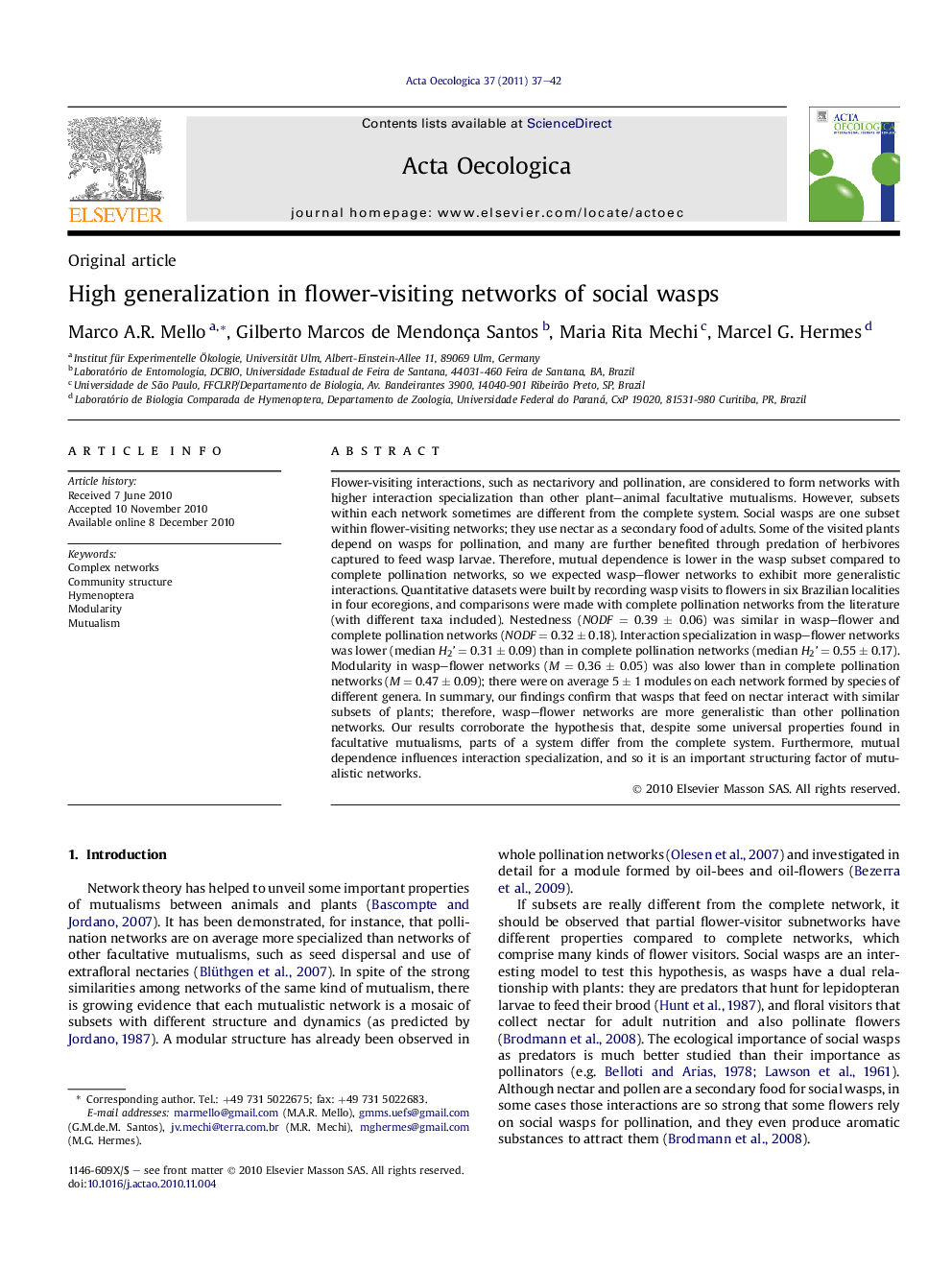| Article ID | Journal | Published Year | Pages | File Type |
|---|---|---|---|---|
| 6297413 | Acta Oecologica | 2011 | 6 Pages |
Abstract
Flower-visiting interactions, such as nectarivory and pollination, are considered to form networks with higher interaction specialization than other plant-animal facultative mutualisms. However, subsets within each network sometimes are different from the complete system. Social wasps are one subset within flower-visiting networks; they use nectar as a secondary food of adults. Some of the visited plants depend on wasps for pollination, and many are further benefited through predation of herbivores captured to feed wasp larvae. Therefore, mutual dependence is lower in the wasp subset compared to complete pollination networks, so we expected wasp-flower networks to exhibit more generalistic interactions. Quantitative datasets were built by recording wasp visits to flowers in six Brazilian localities in four ecoregions, and comparisons were made with complete pollination networks from the literature (with different taxa included). Nestedness (NODF = 0.39 ± 0.06) was similar in wasp-flower and complete pollination networks (NODF = 0.32 ± 0.18). Interaction specialization in wasp-flower networks was lower (median H2' = 0.31 ± 0.09) than in complete pollination networks (median H2' = 0.55 ± 0.17). Modularity in wasp-flower networks (M = 0.36 ± 0.05) was also lower than in complete pollination networks (M = 0.47 ± 0.09); there were on average 5 ± 1 modules on each network formed by species of different genera. In summary, our findings confirm that wasps that feed on nectar interact with similar subsets of plants; therefore, wasp-flower networks are more generalistic than other pollination networks. Our results corroborate the hypothesis that, despite some universal properties found in facultative mutualisms, parts of a system differ from the complete system. Furthermore, mutual dependence influences interaction specialization, and so it is an important structuring factor of mutualistic networks.
Related Topics
Life Sciences
Agricultural and Biological Sciences
Ecology, Evolution, Behavior and Systematics
Authors
Marco A.R. Mello, Gilberto Marcos de Mendonça Santos, Maria Rita Mechi, Marcel G. Hermes,
